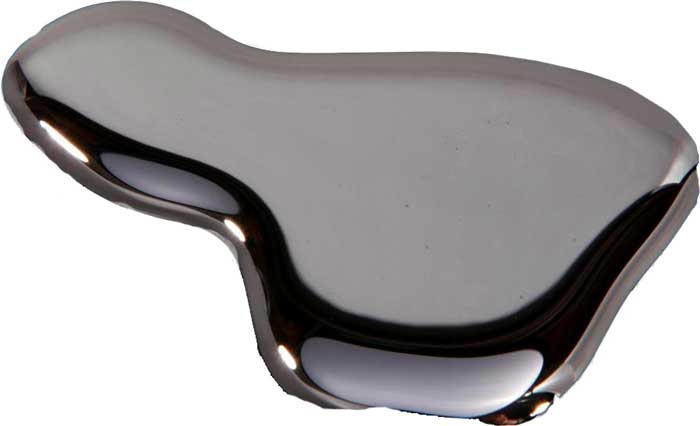While mercury is the only liquid metal at room temperature the elements gallium cesium and rubidium melt under slightly warmer conditions.
What is the state of mercury at room temperature.
Mercury is a chemical element with the symbol hg and atomic number 80.
Across this temperature range a person isn t either hot or cold when wearing ordinary clothing.
Somewhere in the middle is mercury which stays in a liquid state until its temperature drops to 40.
This is one of the cool physical properties of mercury as it is classified as a metal.
Answermercury only becomes solid at temperatures below 37 89 degrees fahrenheit mercury becomes a liquid at room temperature mercury is very weird.
Room temperature definition.
It is commonly known as quicksilver and was formerly named hydrargyrum h aɪ ˈ d r ɑːr dʒ ər ə m hy drar jər əm.
A heavy silvery d block element mercury is the only metallic element that is liquid at standard conditions for temperature and pressure.
At room temperature mercury exists in the liquid state 22694301.
The definition of the temperature range is somewhat different for science and engineering compared with climate control.
A metal is full of bonds between the atoms that make it up explains carter.
The element mercury is a liquid at room temperature due to its weak atomic bonds.
The melting point of mercury is 38 83 degrees celsius or 37 89 degrees fahrenheit.
By visually determining the physical state of a substance does not produce a new substance.
What determines a material s melting point has everything to do with the energy associated with the bonds.
Mercury being a liquid at room temperature is an.
Mercury can be solidified by cooling it to below its melting point.
Another method to solidify mercury is by exposing it to high pressures above 14 kilo bar.
So if the mercury is a liquid that means it underwent a.
Room temperature is a range of temperatures that denotes comfortable habitation for humans.
Mercury exists as a liquid at room temperature.
If scientists ever synthesize a sufficient quantity of flerovium and copernicium these elements are expected to have an even lower boiling point and perhaps melting point than mercury.




























